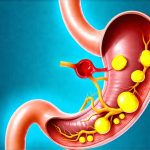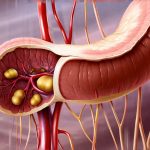Waking up drenched in sweat can be unsettling, especially if it happens repeatedly at night. Beyond the discomfort and disruption to sleep, many people immediately worry about what’s causing it – is it a sign of something serious? While numerous factors can lead to nocturnal sweating (also known as night sweats), one question that frequently arises among individuals experiencing gastroesophageal reflux disease (GERD) is whether cold sweats at night could be linked. It’s important to understand the complex relationship between these two, and why identifying the root cause is crucial for appropriate management. Often, it’s a straightforward issue easily addressed with lifestyle modifications or medication adjustments, but sometimes it does warrant further investigation.
The link isn’t always obvious. GERD primarily manifests as heartburn, regurgitation, and difficulty swallowing – typical digestive symptoms. Cold sweats, on the other hand, are often associated with anxiety, infection, or hormonal changes. However, the vagus nerve plays a significant role in both conditions, creating a potential pathway for connection. This nerve is responsible for regulating numerous bodily functions, including digestion and heart rate, and can be overstimulated during intense GERD episodes, potentially triggering sweating as part of the body’s stress response. Understanding this interplay – and recognizing when cold sweats are genuinely concerning – is key to proactive health management. If you’re concerned about feeling tired after eating, it’s important to seek medical advice.
The Vagus Nerve Connection & GERD-Related Sweating
The vagus nerve is a remarkably long cranial nerve extending from your brainstem down to your abdomen, acting as a two-way communication highway between the gut and the brain. In the context of GERD, its role is multifaceted. – It influences stomach acid production. – It controls esophageal motility (how food moves through the esophagus). – And crucially, it’s involved in the autonomic nervous system’s response to discomfort and pain. When GERD symptoms are severe – particularly if they involve intense chest pain that can mimic a heart attack – the vagus nerve can become highly activated. This activation stimulates the sympathetic nervous system (your ‘fight or flight’ response), triggering physiological changes like increased heart rate, rapid breathing, and…sweating.
The type of sweat is important here. Night sweats related to GERD are more commonly described as cold sweats – not necessarily profuse heat-induced sweating. This difference suggests the activation isn’t simply due to body temperature regulation but rather a neurological response to discomfort or perceived threat. It’s essentially your body reacting to what it perceives as a stressful event, even if that “stressor” is acid reflux. The intensity of these cold sweats can vary significantly from person to person and even episode to episode, depending on the severity of GERD symptoms and individual sensitivity levels.
Furthermore, certain medications used to treat GERD – such as proton pump inhibitors (PPIs) or H2 blockers – can sometimes have side effects that contribute to sweating. While not a direct cause-and-effect relationship in most cases, it’s something to consider, especially if the cold sweats began shortly after starting a new medication. A healthcare professional can help determine if an alternative treatment option might be more appropriate. Recognizing gut health and anxiety connections is crucial for holistic care.
Differentiating GERD Sweats from Other Causes
It’s vital not to automatically assume that night sweats are solely due to GERD. Many other conditions can cause nocturnal sweating, some of which require prompt medical attention. Common culprits include: – Infections (like tuberculosis or endocarditis). – Menopause and hormonal shifts. – Anxiety disorders. – Certain medications (antidepressants, diabetes medication). – Sleep apnea. – Lymphoma or leukemia (rarely, but important to rule out). Therefore, a thorough assessment is essential.
The key distinction between GERD-related cold sweats and those caused by other factors often lies in the timing and accompanying symptoms. GERD-related sweating typically occurs during or shortly after an episode of reflux, and it’s usually accompanied by classic GERD symptoms like heartburn, regurgitation, or a sour taste in the mouth. Sweats linked to infections might be associated with fever, chills, and fatigue. Menopausal night sweats are often more generalized and come with other menopausal symptoms. If the sweating is unrelated to reflux episodes, happens consistently regardless of your GERD status, or is accompanied by alarming symptoms like unexplained weight loss, persistent fever, or swollen lymph nodes – it’s crucial to seek medical attention immediately. It may be necessary to explore diagnostic tools like endoscopic ultrasound (EUS) for accurate assessment.
When to Consult a Doctor
While mild, infrequent cold sweats alongside typical GERD symptoms are usually not cause for alarm, certain scenarios warrant a visit to your doctor. These include: – Frequent and severe night sweats that disrupt sleep consistently. – Sweats accompanied by other concerning symptoms like fever, weight loss, or fatigue. – A sudden increase in the frequency or intensity of sweating. – If you’ve recently started new medication for GERD and the sweating began shortly after. – If over-the-counter remedies or lifestyle changes aren’t providing relief from GERD symptoms.
Your doctor will likely begin with a detailed medical history, asking about your GERD symptoms, medications, other health conditions, and family history. They may also perform a physical exam and order tests to rule out other causes of night sweats. These tests could include blood work (to check for infection or hormonal imbalances), an endoscopy (to assess the esophagus and stomach), or sleep studies (if sleep apnea is suspected). Don’t hesitate to be proactive about your health – it’s always better to err on the side of caution. Understanding chronic gastritis can also help in diagnosis.
Managing GERD & Potentially Reducing Night Sweats
Effective management of GERD can often significantly reduce the frequency and severity of associated cold sweats. Here are some strategies: – Lifestyle Modifications: This includes elevating the head of your bed, avoiding trigger foods (spicy, fatty, acidic), eating smaller meals, losing weight if overweight, and not lying down immediately after eating. – Dietary Changes: Identify and eliminate foods that worsen your GERD symptoms. Common triggers include caffeine, alcohol, chocolate, peppermint, and citrus fruits. – Medication Adherence: Take your prescribed GERD medications as directed by your doctor. Don’t stop taking medication without consulting them first. – Stress Management: Techniques like yoga, meditation, or deep breathing exercises can help reduce stress levels, which may contribute to vagal nerve activation.
Consider keeping a symptom journal to track when the sweats occur, what you ate beforehand, and any other relevant factors. This information can be invaluable in identifying triggers and tailoring your management plan. Remember that GERD is often manageable with consistent effort and appropriate medical guidance. By addressing the underlying reflux symptoms, you may also alleviate the associated cold sweats and improve your overall quality of sleep. Recognizing IBS as a potential contributor to digestive discomfort is essential.
Beyond GERD: Exploring Other Potential Causes
While we’ve focused on the connection between GERD and night sweats, it’s imperative to remember that countless other factors can contribute to this symptom. Dismissing alternative causes in favor of a presumed GERD link could delay proper diagnosis and treatment for a more serious underlying condition. It is important not to self-diagnose and always seek professional medical evaluation.
One often overlooked contributor is sleep apnea, a common sleep disorder characterized by pauses in breathing during sleep. These pauses can lead to oxygen deprivation, triggering the sympathetic nervous system and causing sweating, among other symptoms like loud snoring and daytime fatigue. Hormonal fluctuations, particularly during menopause or perimenopause, are also frequent culprits, leading to vasomotor symptoms that include hot flashes and night sweats. Anxiety and panic disorders can similarly induce cold sweats due to activation of the autonomic nervous system.
Finally, certain medical conditions – ranging from infections (like tuberculosis) to cancers (lymphoma, leukemia) – can manifest with night sweats as a symptom. These more serious causes typically present with other accompanying symptoms, such as fever, weight loss, or fatigue, making early detection crucial. A comprehensive evaluation by a healthcare professional is essential to determine the underlying cause of your night sweats and ensure appropriate management.
The Role of Anxiety & Stress
The connection between anxiety, stress, and cold sweats is well-established. When you experience anxiety or stress, your body releases hormones like adrenaline and cortisol, which activate the sympathetic nervous system – preparing you for ‘fight or flight’. This activation leads to physiological changes such as increased heart rate, rapid breathing, and sweating. In some individuals, this response can manifest as cold sweats, even in the absence of physical exertion or high temperatures.
Chronic stress and anxiety can also exacerbate GERD symptoms, creating a vicious cycle where reflux triggers anxiety, which further worsens reflux. This interplay between psychological state and physical symptoms underscores the importance of addressing both aspects for effective management. Techniques like mindfulness meditation, deep breathing exercises, yoga, and cognitive behavioral therapy (CBT) can all help manage stress and anxiety levels, potentially reducing the frequency of both GERD symptoms and associated cold sweats.
Medication Side Effects & Interactions
Many medications – beyond those used to treat GERD – can have sweating as a side effect. Antidepressants, diabetes medications, and even some over-the-counter pain relievers can contribute to nocturnal sweating. It’s essential to review your medication list with your doctor or pharmacist to identify any potential culprits. Drug interactions can also play a role; combining certain medications might increase the risk of side effects, including sweating.
If you suspect that your medication is contributing to night sweats, do not stop taking it without consulting your doctor first. They may be able to adjust your dosage, switch you to a different medication, or recommend strategies to manage the side effects. It’s crucial to remember that stopping medication abruptly can sometimes have more serious consequences than continuing with the side effects under medical supervision.


















